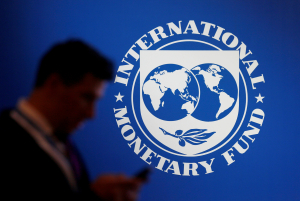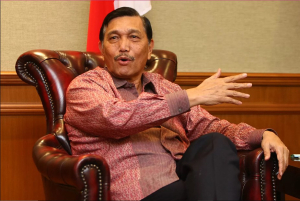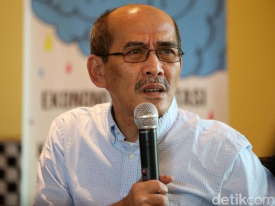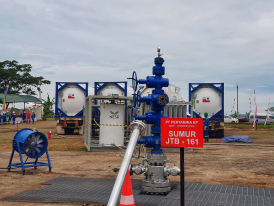Indonesian seaweed factories set for revival with government aid
The Indonesian Seaweed Association (ARLI) has reported that 10 seaweed processing factories, inactive since 2016, are now receiving assistance from the Ministry of Industry to resume operations.
The Indonesian Seaweed Association (ARLI) has revealed that since 2016, 10 seaweed processing factories have been inactive, leaving only 45 operational factories in the country. In response, the Ministry of Industry is stepping in to help these dormant factories restart operations, in line with the government’s seaweed downstreaming initiative for 2024.
ARLI deputy chairman Pontas Tambunan said that these 10 factories are receiving aid for machinery restructuring.
"Some are being assisted by the Ministry of Industry for revitalization," Pontas said in Jakarta on Tuesday, June 25, 2024.
Director General of Agro Industry at the Ministry of Industry, Putu Juli Ardika, announced that the Ministry is revising Regulation No. 9/2022 on the Provision of Machinery and Equipment Assistance. The revised regulation will offer a subsidy covering 30 percent to 35 percent of the cost of new machinery.
For small and medium-sized seaweed factories, the subsidy could be as high as 40 percent.
"This will enhance the capacity and capabilities of seaweed industry products," Putu said.
He cited incentives for the seaweed industry, including granting industrial area status to many factories currently not located in designated industrial zones.
Given the unique locations of these factories, often close to the sea, achieving industrial area status should be straightforward. "We are discussing this step with relevant local administrations," he said.
These incentives are part of the government’s commitment to seaweed downstreaming. According to Putu, easing industrial area status will facilitate product diversification, industrial cooperation, and local content certification (TKDN).
Earlier, Mochammad Firman Hidayat, Deputy for Coordination of Maritime Resources at the Coordinating Ministry for Maritime Affairs and Investment, said that seaweed could be processed into five products: carrageenan and jelly, organic fertilizers, wheat substitutes, eco-friendly plastics, and biofuels.
Currently, Indonesian seaweed cultivation only processes carrageenan and jelly, and organic fertilizers.
Domestic seaweed prices range from US$1,000 to US$2,000 per ton. The organic fertilizer industry can absorb seaweed at US$8,000 per ton, while the carrageenan and agar industries can pay up to US$13,000 per ton (Rp213.5. Million).
Carrageenan and agar serve as raw materials for the pharmaceutical, cosmetics, and processed food industries.
For the wheat substitute industry to achieve economic scale, seaweed must be priced at US$300 per ton. The eco-friendly plastics industry values seaweed at US$250 per ton, and the biofuel industry at US$100 per ton.
Tag
Already have an account? Sign In
-
Start reading
Freemium
-
Monthly Subscription
30% OFF$26.03
$37.19/MonthCancel anytime
This offer is open to all new subscribers!
Subscribe now -
Yearly Subscription
33% OFF$228.13
$340.5/YearCancel anytime
This offer is open to all new subscribers!
Subscribe now






